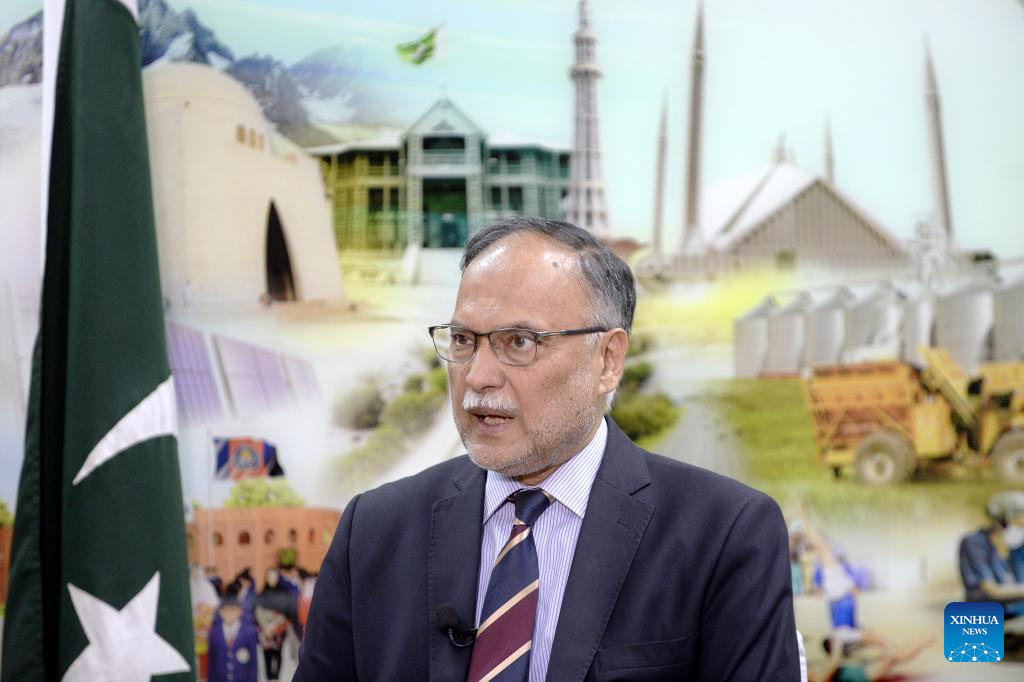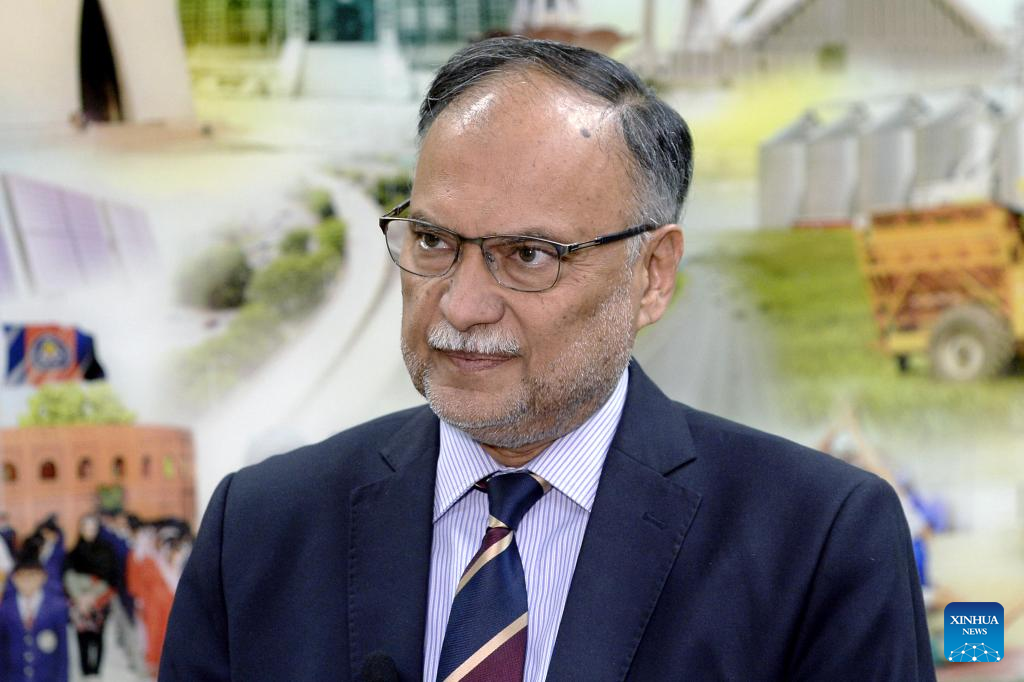
Ahsan Iqbal, Pakistani minister for planning, development and special initiatives, speaks during an interview with Xinhua in Islamabad, capital of Pakistan on May 23, 2024. (Xinhua/Ahmad Kamal)
by Misbah Saba Malik, Jiang Chao
ISLAMABAD, June 6 (Xinhua) -- The high-quality development of Pakistan's Gwadar port under the framework of the China-Pakistan Economic Corridor (CPEC) is a testimony that the China-proposed Belt and Road Initiative (BRI) is helping Gwadar evolve into a world-class port city brimming with opportunities, a Pakistani minister said.
Located in the southwestern Balochistan province, the port presents significant opportunities for maritime trade in the region, including giving access to landlocked Central Asian country of Afghanistan, Ahsan Iqbal, the minister for planning, development and special initiatives, told Xinhua in a recent interview.
"The current development of Gwadar is just the first step and the port has a long way to go ... In partnership with China, we hope that Gwadar will become an internationally acclaimed world-class port city, which will have tremendous opportunities for the people of Pakistan," Iqbal added.
Launched in 2013, CPEC, a flagship project under the BRI, is a corridor linking Pakistan's Gwadar port with Kashgar in northwest China's Xinjiang Uygur Autonomous Region, highlighting energy, transport, and industrial cooperation in the first phase, while the new phase expands to the areas of agriculture and improving livelihoods, among others.
Under CPEC, both China and Pakistan are dedicated to developing Gwadar into a model smart city port, and in this regard a comprehensive master plan has been designed, with infrastructure is being developed.
Talking about the prospects for investment in the Gwadar free zone, Iqbal said that several Chinese companies have showed interest in investing in industrial plants both for domestic production and export to other countries.
He said chances to invest in Gwadar are available for all countries around the world to collaborate with Pakistan and China and enjoy the fruits of CPEC.
"CPEC and the BRI seek a shared future based on common principles of prosperity shared across people. And we appreciate that China is sharing its success, not just with Pakistan, but with other countries also to help them improve their infrastructure and socio-economic development," he added.
In Gwadar, China has not only focused on developing the state-of-the-art port facility but also contributed to the local socio-economic development, with China-aided projects, including a modern hospital for the people of Gwadar, a technical training institution, a water desalination plant, and a 4F-class international airport, he said.
Apart from the mega projects, China also keeps on helping the underprivileged people by providing them with solar panels to generate electricity, and awarding scholarships for study in Chinese universities, he added.
"China's contribution in Gwadar has been very valuable in uplifting the lives of people and the region. Instead of just being a bystander, China has chosen to make its contribution," Iqbal said.
After completing early harvest projects in the first phase of CPEC, the minister said, the forthcoming phase will unlock significant opportunities for Pakistan, enhancing livelihoods and socio-economic development.
It will also connect Pakistan with cutting-edge technologies, driving an agricultural revolution and enhancing industrial growth to boost the country's industrial capabilities, helping Pakistan become a model of export-led growth, he added.
Meanwhile, he expressed the confidence in an even faster development speed for the new phase of CPEC. ■

Ahsan Iqbal, Pakistani minister for planning, development and special initiatives, speaks during an interview with Xinhua in Islamabad, capital of Pakistan on May 23, 2024. (Xinhua/Ahmad Kamal)



